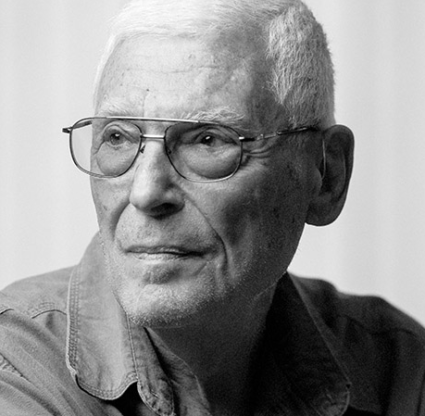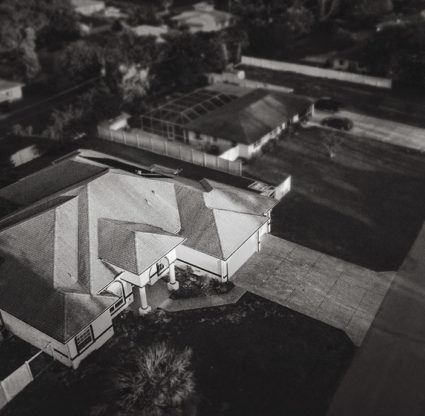Cover Story |
 |
| Go behind the scenes at the photo shoot for this story. |
Picturesque. Laid-back. Tropical. Blissful. Lots of adjectives get assigned to Southwest Florida. “Rockin’” isn’t one of them. And that’s exactly why the rock stars love it here.
Some of the music industry’s most recognizable names have at one point or another called Lee and Collier counties home—Donna Summer, Bob Seger, Jose Feliciano, John Lodge of the Moody Blues, Rickey Medlocke of Lynyrd Skynyrd. Outside of Rush guitarist Alex Lifeson’s run-in with the law at a 2003 New Year’s Eve party at The Ritz-Carlton, Naples, they haven’t brought what most people would consider the rock ’n’ roll lifestyle with them. Nope. That would be defeating the purpose of ditching the big cities and their crazy nightclubs for our little corner of the world.
For the rockers who call Southwest Florida home, this place is about escaping the rigors of the road and settling into the subtropics. Meet three of our favorite rock stars/community philanthropists/neighborhood pals/ordinary guys who live among us.
Brian Howe
 When he’s not on tour, you can often find Brian Howe at the bar of Skye’s Restaurant, a Mexican-American hybrid joint just about a mile north of his Fort Myers Beach compound.
When he’s not on tour, you can often find Brian Howe at the bar of Skye’s Restaurant, a Mexican-American hybrid joint just about a mile north of his Fort Myers Beach compound.
“It’s my favorite haunt,” he says. “It’s just a nice neighborhood bar. Everyone just treats me like I’m Brian from down the street.”
Except he’s not just Brian from down the street. He’s Brian Howe, former lead singer of one of the biggest super groups of the 1980s—Bad Company. He stumbled upon the island when he suddenly had some time to kill during a Florida tour swing in 1986 that got delayed.
“It was Dec. 12,” he says. “I checked into the Lani Kai and absolutely fell in love with the place. I’m from England, so I’d never really seen this kind of weather in December. And there was the beach and palm trees; it was heaven. Within six months I’d made the move. I’ve been here full time ever since.”
Howe believes that the area attracts older rockers because people don’t make a big deal about who they are. Most people down here have been successful at some point in their careers.
“It’s just a neat lifestyle,” he says. “I’m not one for New York or LA or Chicago. This is just about relaxing in the sun and being laid-back.”
Howe grew up knowing he’d be a singer. He watched his dad sing on the English club and pub circuit. But he never expected to hit the big time. From age 3 on he was entering talent contests, and usually winning. He got his big break in the early 1980s when Ted Nugent brought him on to be the lead vocalist for a new album and tour. After that, when Bad Company decided to re-form without original singer Paul Rodgers, Howe was the perfect fit.
“I never expected to get this far, but I’m happy to be doing it,” he says. “I don’t ever plan to stop. I think it’s a fear of not being able to do it anymore that makes me want to go out and do it again the next day.”
Now a longtime solo artist, Howe was putting the final touches on a new album, Hot Tin Roof, when he spoke to Gulfshore Life. The new tunes are what he’s most passionate about. He knows the hits pay the bills, and he says he’s “happy to sing them. How many people get to go out and sing 15 hit songs?
“But I am always thinking about the next song, not the last one. The new stuff—that’s what keeps you fresh.”
Howe says he records all his vocals in his house, using different rooms to get different effects. The new tracks “gave my voice a test,” he says.
The rest of his time is spent enjoying his favorite time of year on the island.
“This is the best because it becomes a little bit like a ghost town,” he says. “The snowbirds have gone north and now it’s just us locals.”
Steve Luongo
 Always a musical kid, Steve Luongo knew he wanted to be a drummer in second grade when the high school orchestra played for his elementary school. “That was my first live music experience, and the second I heard the music, when the drums started playing, I knew that’s what I wanted to do.”
Always a musical kid, Steve Luongo knew he wanted to be a drummer in second grade when the high school orchestra played for his elementary school. “That was my first live music experience, and the second I heard the music, when the drums started playing, I knew that’s what I wanted to do.”
By the time he was in his early teens, Luongo was a professional drummer playing gigs with his high school friends in a band that became Rat Race Choir. Although unknown nationally, Rat Race Choir was one of the most popular bands in the New York City metro area for nearly two decades starting in the late 1960s. They never recorded but always had plenty of paying gigs. “From the time I was 18, we were playing 300 shows a year,” Luongo says. “We did that for 20 years. We were making $1,000 a week in the 1960s.”
“It was all sex, drugs and rock ’n’ roll back then,” he says. “A lot of guys went down a long, sordid, scary road. There’s a lot of people from back then that didn’t survive it. We would do 22 shows in three weeks and the manager would do anything to keep you going.”
But national name recognition eluded him. Still, he’s worked as a session musician or in the touring band for John Entwistle, Billy Squier, Alan Parsons and Robin Zander, to name a few.
“Plain and simple, the peaks have been as high as the valleys are low,” Luongo says of his career. “But in the end, I’ve had more success than one person could dream of.”
It was after a tour with Entwistle, the former The Who bassist who would become Luongo’s best friend, that Luongo and his wife, Laurie, found Southwest Florida. “We started going to warm places with Entwistle,” he says. “After one tour, we were living in New York and just wanted to get somewhere else. So I packed up the car with my wife and dog and headed south. We ended up on Sanibel Island. And it was just nothing but solitude. We started renting a little cottage there on Turner Beach. And after a few days there, all the wounds of touring subsided.”
In 2004 they ended up in a house in the Whiskey Creek area that had a pool for their aging wolfhound to swim in to help with mobility issues. “We swam every day, and he lived another six months. That’s when I decided I didn’t want to go back to New York.”
Once they moved to Florida permanently, they had to assimilate into their new community quickly thanks to Hurricane Charley. As any newly minted Floridian would, Luongo panicked a bit when the storm was coming. “I was duct-taping everything and putting all my instruments up in high cabinets,” he says.
But the storm did very little damage to his property. “I think we lost one coconut in one tree,” he says.
The next year after Hurricane Wilma came through the area, Luongo joined up with Cliff Williams and Brian Johnson from AC/DC and members of Cheap Trick, Deep Purple and more to do a benefit concert for hurricane relief. Luongo’s John Entwistle Foundation helped distribute the money after the show.
Thankfully no more storms have come through since. And Luongo has settled into a life of recording music for TV, painting art for his gallery and designing his own line of men’s shirts.
“I don’t think I’ve been this busy ever,” he says.
Cliff Williams
 Not quite 30 years old, Cliff Williams peers out from behind the mob of his band mates on the album cover of AC/DC’s Highway to Hell. In many ways that cover symbolizes Williams’ relationship to the band and to the Fort Myers area. Williams is known for his easy, no-nonsense bass lines that allowed guitarists Angus and Malcolm Young to create some of the most recognizable riffs in rock. He didn’t take the limelight, but his steady work let others thrive.
Not quite 30 years old, Cliff Williams peers out from behind the mob of his band mates on the album cover of AC/DC’s Highway to Hell. In many ways that cover symbolizes Williams’ relationship to the band and to the Fort Myers area. Williams is known for his easy, no-nonsense bass lines that allowed guitarists Angus and Malcolm Young to create some of the most recognizable riffs in rock. He didn’t take the limelight, but his steady work let others thrive.
Since moving to Fort Myers in the late 1980s, that’s the same role he’s played in the community. Williams and his wife, Georganne, aren’t the flashiest philanthropists. They don’t have their name on buildings. But they’ve been central to the growth of several local charities, including The Heights Foundation.
But that was all a respite from life as a rock star.
“Life on a tour bus, once we had graduated from a station wagon with five band members plus a roadie and our luggage and guitars,” Cliff says. “Luckily we were all little guys!
“The first tour bus was an old piece of junk driven by a seriously overweight good ole boy who called himself ‘Jesse James,’ to which we added the words ‘the fat-assed’ to. He would work the CB radio and announce himself onboard along with the rock group ‘AC/DC outa England’ to anyone listening. He never did get the fact it was from Australia, but then he may have thought that was in England.
“This bus life progressed for years to better buses that would not break down on your one day off to flying commercially and having your own hotel room. We lived on the road permanently in those days, with time off for recording a new album and always Christmas and New Year’s off for sanity.”
The couple ended up in Lee County for the most normal-person reasons ever. They were looking for a good place on the water to raise their children and had a good recommendation from a friend.
“We were in Hawaii at the time, but we were looking for a place a little more central so that I could get on tour easily,” he says. “Brian was living in Fort Myers Beach, so we knew the area a little bit. We loved being by the water, loved the beachy, easy vibe. And then we found the Canterbury School.”
The Brian in that story is Brian Johnson, AC/DC’s longtime lead singer who recently left the band because of hearing problems. He has long since decamped from Lee County to Sarasota.
Although the Williams’ kids probably had the best dad ever for career day at school, the rest of their lives was pretty normal by design.
“We never looked at this place as anything other than home,” Williams says. “Our kids were little and going to school when we first came here. Then you make friends and you become part of the community.”
Williams notes that even at the height of AC/DC’s fame in the late ’80s and early ’90s, in Fort Myers he was just another guy raising a family. And now that he’s about to retire, he’ll be just another successful guy who looks for ways to spend his time.
His retirement is in part due to the changes the band has faced over the past few years.
First guitarist and founding member Malcolm Young had to retire because of cancer and dementia. Then drummer Phil Rudd, who has always had a mercurial relationship with the band, was sentenced to house arrest after threatening to kill someone. And the recent departure of Johnson, replaced on tour by Axl Rose, means that most of the people he’s spent the past four decades with are no longer there.
“It’s been what I’ve known for the past 40 years, but after this tour I’m backing off of touring and recording,” he says. “Losing Malcolm, the thing with Phil and now with Brian, it’s a changed animal. I feel in my gut it’s the right thing.”
Williams realizes his story is the one-in-a-million tale that most aspiring rockers never get to tell. Just like the stock room boy who dreams of being the CEO.
“When you start out, you kind of hope for success,” Williams says. “That’s what you are working for. But you never really know. It’s been surreal, really.”





